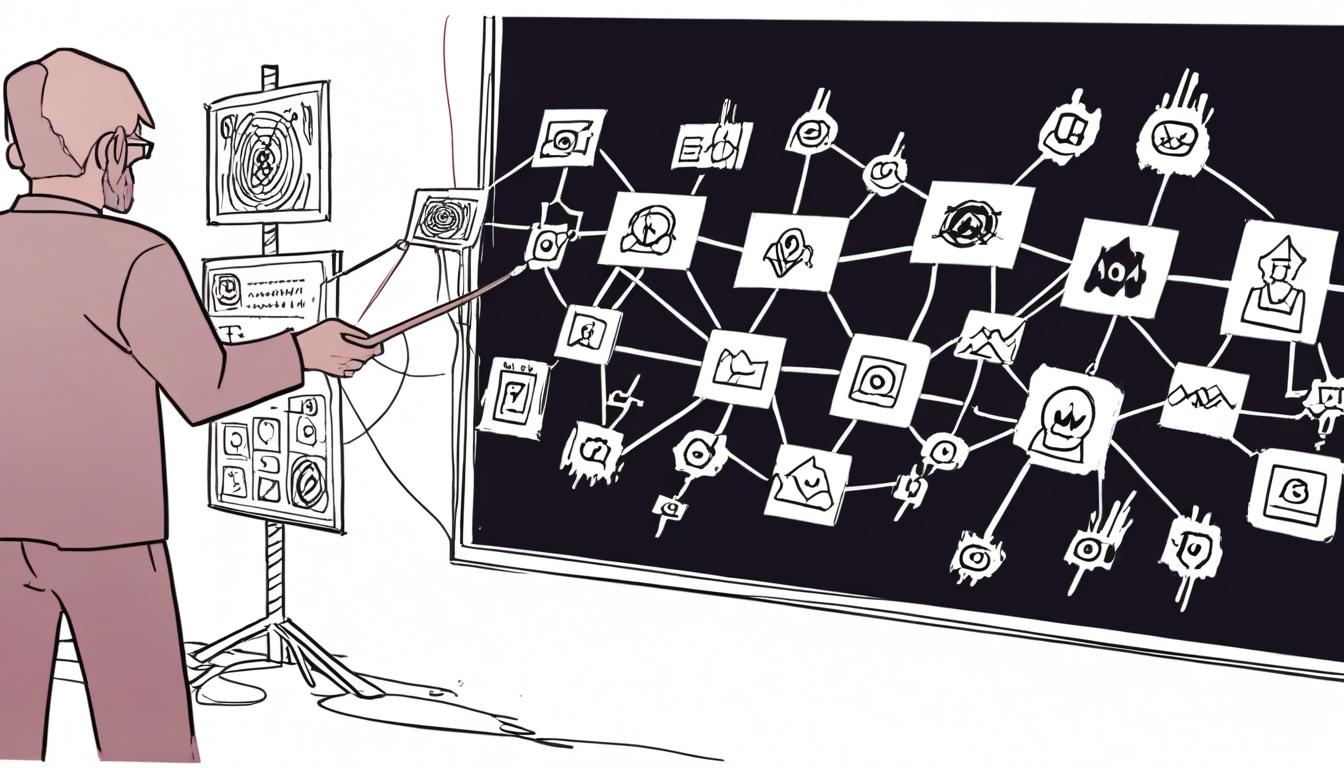The Israeli Democracy Institute highlights the alarming rise of digital antisemitism intensified by social media algorithms and artificial intelligence, revealing challenges in content moderation and diverging regulatory approaches between the US and Europe at a critical global juncture.
In early February, the Israeli Democracy Institute highlighted the growing concern over digital antisemitism, particularly the intensifying role of social media algorithms and artificial intelligence (AI) in spreading hate speech online. This issue was underscored during a speech at the annual conference of the Organization for Security and Co-operation in Europe (OSCE) in Helsinki, a key international forum established in 1975 to promote security and cooperation across Europe, including combating xenophobia and antisemitism.
The Israeli Democracy Institute emphasised that social media platforms have evolved into significant conduits for digital antisemitism. These platforms’ algorithms are designed to maximise user engagement, often prioritising extreme and provocative content over nuanced and truthful discourse. Features such as TikTok’s “For You” page, YouTube’s recommendation system, and the feeds on Facebook and Instagram are said not only to facilitate but to actively promote antisemitic content. The report cited public figures like Jackson Hinkle and Kanye West, noting their roles in disseminating extremist neo-Nazi messages to millions of followers.
A notable disparity is highlighted in how online content moderation systems address hate speech. Posts with explicitly racist comments, such as derogatory statements about Africans, are swiftly flagged and removed, while antisemitic tropes—such as claims that “Jews control global finance”—may escape scrutiny, since such expressions paradoxically do not appear to demean Jews in a conventional sense but rather suggest undue influence or power. This reflects underlying flaws in content-monitoring mechanisms and the challenges of tackling nuanced hate speech.
The report pointed out the orchestrated nature of much digital antisemitism, noting an unprecedented surge in hateful narratives following events on 7 October, suggesting deliberate manipulation of social media algorithms to spread disinformation and intensify hostility towards Jewish communities worldwide.
Beyond social media, artificial intelligence is identified as a formidable new tool automating and amplifying antisemitism. AI technologies are increasingly capable of altering historical narratives, including attempts to erase or distort the Holocaust, rewriting pivotal events like the founding of the State of Israel, and generating antisemitic digital imagery featuring exaggerated stereotypes. The report also warned about more subtle, invisible forms of discrimination emerging through data profiling based on genetic information or family names, which can influence pricing and access to digital services without transparency.
The Israeli Democracy Institute’s analysis expressed concern over recent regulatory shifts in the United States, where many social media and AI companies are based. While the current U.S. administration has vowed to fight antisemitism, it has simultaneously eased certain AI regulations and curtailed federal content moderation efforts. Such deregulatory moves may hinder the country’s capacity to combat online hate effectively.
At the same time, a parallel policy debate in Europe was taking place during the Artificial Intelligence Action Summit in Paris, where the European Union advocated for stricter regulations on AI and social media through legislation like the Digital Services Act and the Artificial Intelligence Act. The divergence between U.S. calls against what it terms “over-regulation” and Europe’s push for more stringent oversight underscores the complex international landscape shaping the future of technology governance.
The Israeli Democracy Institute stressed that the battle against antisemitism will increasingly be fought not only in traditional public or religious spaces but within tech policy frameworks and regulatory processes shaping the digital environment. It further called for vigilance regarding companies owned or influenced by authoritarian regimes, citing examples such as TikTok and DeepSeek, which may threaten democratic values from within.
Additionally, it highlighted the urgent need for global agreements to curb the invasive misuse of AI technologies, alongside reinforcing privacy and data protection laws, particularly concerning sensitive personal information linked to race and ethnicity. The report concluded by warning that unchecked digital antisemitism driven by AI poses risks far beyond Jewish communities, threatening minorities and marginalised groups worldwide through escalating online hostility and discrimination.
This comprehensive examination was originally published in the Times of Israel.
Source: Noah Wire Services
- https://en.idi.org.il/articles/59055 – Corroborates the Israeli Democracy Institute’s analysis of algorithm-driven social media and AI intensifying antisemitism, including concerns about regulatory shifts and tech policy frameworks.
- https://www.brandeis.edu/jewish-experience/social-justice/2022/may/antisemitism-social-media.html – Supports the role of social media as a conduit for antisemitism, aligning with findings about algorithmic amplification of hate speech and extremist content.
- https://www.adl.org/resources/press-release/social-media-and-search-algorithms-contribute-proliferation-online-hate – Validates claims about algorithms on Instagram, Facebook, and Twitter promoting antisemitic content, including Meta’s role in recommending Nazi propaganda to test personas.
- https://www.adl.org/resources/report/bad-worse-amplification-and-auto-generation-hate – Confirms the study’s findings regarding social media platforms directing users to extremist content, with specific examples of AI-driven amplification of antisemitism.
- https://www.americanbar.org/groups/crsj/resources/human-rights/2024-december/how-social-media-stokes-antisemitism/ – Reinforces the need for international collaboration to address online antisemitism, as highlighted in the article’s discussion of content moderation challenges.
Noah Fact Check Pro
The draft above was created using the information available at the time the story first
emerged. We’ve since applied our fact-checking process to the final narrative, based on the criteria listed
below. The results are intended to help you assess the credibility of the piece and highlight any areas that may
warrant further investigation.
Freshness check
Score:
8
Notes:
The narrative references events and reports up to early 2024, including the October 7 event and recent regulatory debates in the US and EU related to AI and content moderation. The original report was published in the Times of Israel recently, indicating the content is current and not recycled from much older material.
Quotes check
Score:
7
Notes:
Direct quotes attributed to the Israeli Democracy Institute and references to public figures like Jackson Hinkle and Kanye West are included. These appear to originate from the report itself rather than being reused from older media. However, exact original dates or sources for these quotes beyond the report publication cannot be independently verified online, suggesting some originality but leaving room for confirmation.
Source reliability
Score:
8
Notes:
The analysis originates from the Israeli Democracy Institute, a recognised think tank specialising in Israeli democracy and antisemitism issues, with the content published in the Times of Israel, a widely respected news outlet. Both have credible reputations, lending reliability to the claims made.
Plausability check
Score:
9
Notes:
The claims about the role of social media algorithms, AI’s amplification of hate speech, challenges in content moderation, and contrasting US and EU regulatory approaches align with widely observed trends and expert discourse on digital antisemitism and AI impact, making the narrative plausible and consistent with current knowledge.
Overall assessment
Verdict (FAIL, OPEN, PASS): PASS
Confidence (LOW, MEDIUM, HIGH): HIGH
Summary:
The narrative is recent, drawing on a current report from a credible institute and published by a reputable news platform. Quotes appear original though exact sourcing details are limited. The claims about digital antisemitism’s growth and AI’s role correspond with established evidence and ongoing policy debates. Overall, the information is reliable, plausible, and timely.













